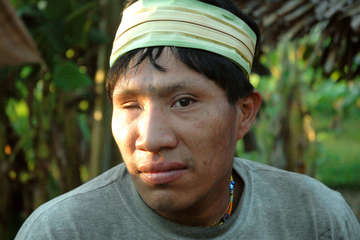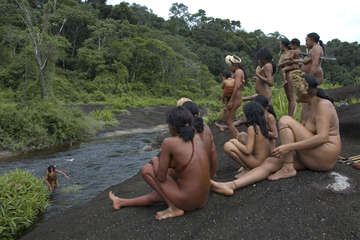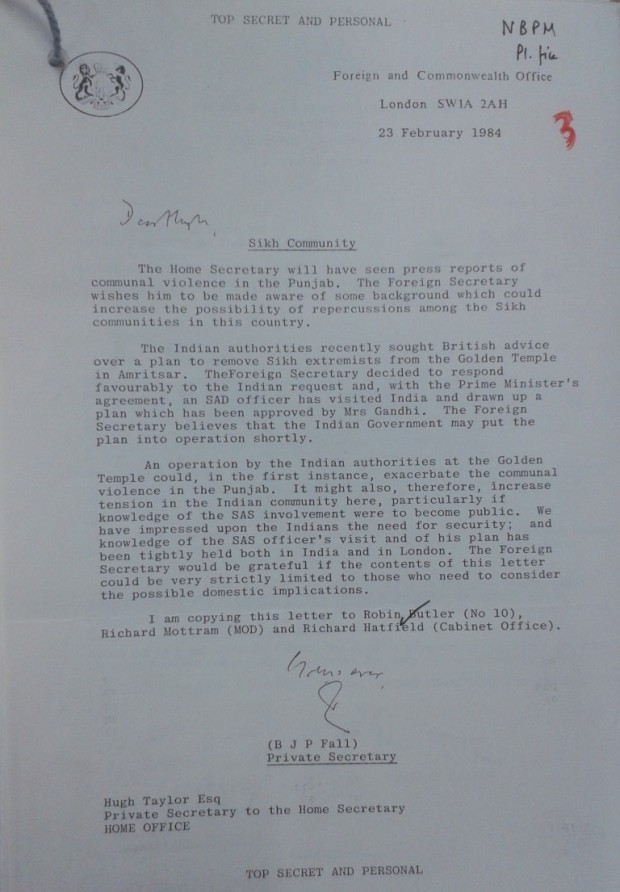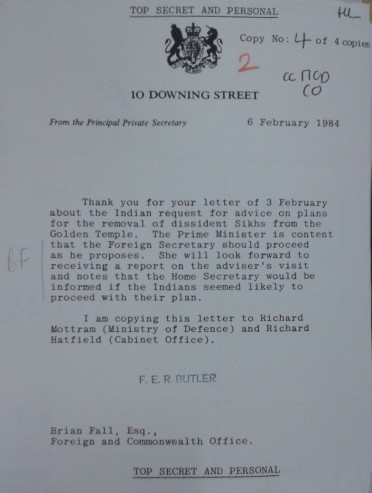The history of Buddhism in the Western world goes back to a period
before the Christian era. First there were those contacts and
inter-cultural influences which gave
Buddhism a hearing in the world into which Christianity was born and
developed. Secondly, there were outstanding scholars in the nineteenth
and twentieth centuries who presented Buddhism to the Western world
through editions and translations of Buddhist scriptures and their
research. Finally, certain misrepresentations of Buddhism which persist
in the minds of Westerners need to be removed and a brief positive
account of what Buddhism has to offer to our modern world presented.
The Buddha lived in India in the sixth century B.C. The first historical and important confrontation between the classical East and the classical West took place in the fourth century B.C. when Alexander the Great invaded India. He was no ordinary soldier. As a pupil of Aristotle, he deeply appreciated cultural values, and in his expedition was a large number of scholars and artists for cultural exchanges. It is reasonable to suppose that the knowledge of Indian culture these Greek intellectuals and artists took back to their country included some acquaintance with Buddhism. As a result of this meeting of East and West, diplomatic relations were established and maintained between several Greek rulers and India's Court of Pataliputra (modern Patna), the capital of the Maurya Empire.
In the third century B.C., the great Buddhist Emperor Asoka of India, sometimes described as the Buddhist Constantine, in three of his Edicts (Rock Edicts II, V and XIII), engraved on rocks and still extant, declared that he had established a ministry of religious affairs (called Dharma-mahamatra) to spread the Dharma and to promote moral and religious life among the people, and that he had sent successful 'Missions of Piety' to some Greek territories in addition to various parts of his own empire. He mentions by name five Greek kings to whom these missions were sent. They have been identified as Antiochus II of Syria (261-246 B.C.), Ptolemy II of Egypt (285-247 B.C.), Antigonas Gonatas of Macedonia (276-246 B.C.), Magas of Cyrene (300-258 B.C.) and Alexander of Epirus (272-258 B.C.). There can be no reasonable doubt that Asoka's envoys' or 'missionaries' (Duta) spread a knowledge of Buddhism in these Greek territories, where Judaism was already known.
A few years ago an Edict of Asoka in both Greek and Aramaic languages was discovered in Afghanistan. (It is interesting to note that Aramaic was the language of Christ.) Very recently another Edict in Greek only, not as yet published, was discovered in the same country. The contents of these Edicts are more or less the same as those of Asoka's 'Edicts of Dharma' (Dharmalipi) discovered in India. It is now believed that almost all Asoka's Indian Edicts were published simultaneously in Greek too for the benefit of Greek speaking peoples.
'The Questions of Milinda' (The Milinda-panha), the well-known Buddhist text in Pali language written about the first century after Christ (A.C.), reports a discussion on some important Buddhist doctrinal problems between a king named Milinda and the Buddhist scholar-saint Nagasena. This king has been identified as the Greek king Menandros, who ruled over the north?western part of India in the first century B.C.
' The Great Chronicle of Sri Lanka' (The Mahavamsa), written in the fifth century A.C., but based on earlier material, says that in the first century B.C. a delegation of Buddhist monks from the Greek city of Alexandria (Yona-nagara-Alasanda), led by the Greek Elder Dhammarakkhita the Great, attended the inauguration ceremony of the Great Stupa (now called Ruvanvali-saya), at Anurdhapura in Sri Lanka. Whether this refers to Alexandria in Egypt or some other Alexandria, it was a Greek city where an important Buddhist community existed.
Clement of Alexandria, one of the 'early Church fathers', in the closing decade of the second century A.C., says that among the 'barbarians' whose philosophy came to Greece were 'those who obey the precepts of Buddha'.
Numerous scattered references like these indicate the existence of Buddhism in the West in those early days. There should be no doubt as to the Buddhist influence on the Greek world and on early Christianity. The Christian monastery itself seems to have been influenced by the Buddhist monachism. It is well-known that Buddhists were the first in history to establish and organize cenobitic monasteries. Yet, curiously, no documents pertaining to Buddhism in the West in those early days are to be found today. One wonders whether they were destroyed by nature or perished at the hand of narrow?minded fanaticism. The influence of Buddhism and Indian thought on Western culture especially during those formative Christian centuries would provide serious students with numerous subjects of research.
After a silence of many centuries, the West began to hear of Buddhism again about the beginning of the sixteenth century. Christian missionaries who went from Europe to the East sent back reports which understandably were biased and misleading, full of prejudgements and misunderstandings. But the valuable contributions made by some Christian missionaries in the nineteenth and early twentieth centuries ought not to be forgotten.
The serious study of Buddhism began in the West in the early nineteenth century. If what follows should seem to be no more than a bead?roll of the names of those to whom the Western world today owes its knowledge of the Buddha and his teaching, attention has to be drawn to those who founded the study of Buddhism in faculties and universities all over the world.
A summary of the nineteenth century advance in Western studies of Buddhism must begin with the German philosopher Schopenhauer (1788-1860), who awakened an interest among Western philosophers and intellectuals through his references to Buddhism which he greatly admired. But the credit for initiating the systematic and scientific study of Buddhism goes to the French Orientalist Eugene Burnouf (1801-1852) with the publication in 1826 of his pioneer work Essai sur le Pali, in collaboration with the German scholar Lassen. (Among his other works should be mentioned L'Introduction d I'Histoire du Bouddhisme indien (1844) and his translation of the well-known Mahayana Buddhist Sanskrit sutra called Saddharma-pundarika (1852).) Among Burnouf's eminent pupils was the German Indologist Max Miiller. One may consider Burnouf as the father of Buddhist studies in the West.
The Buddha lived in India in the sixth century B.C. The first historical and important confrontation between the classical East and the classical West took place in the fourth century B.C. when Alexander the Great invaded India. He was no ordinary soldier. As a pupil of Aristotle, he deeply appreciated cultural values, and in his expedition was a large number of scholars and artists for cultural exchanges. It is reasonable to suppose that the knowledge of Indian culture these Greek intellectuals and artists took back to their country included some acquaintance with Buddhism. As a result of this meeting of East and West, diplomatic relations were established and maintained between several Greek rulers and India's Court of Pataliputra (modern Patna), the capital of the Maurya Empire.
In the third century B.C., the great Buddhist Emperor Asoka of India, sometimes described as the Buddhist Constantine, in three of his Edicts (Rock Edicts II, V and XIII), engraved on rocks and still extant, declared that he had established a ministry of religious affairs (called Dharma-mahamatra) to spread the Dharma and to promote moral and religious life among the people, and that he had sent successful 'Missions of Piety' to some Greek territories in addition to various parts of his own empire. He mentions by name five Greek kings to whom these missions were sent. They have been identified as Antiochus II of Syria (261-246 B.C.), Ptolemy II of Egypt (285-247 B.C.), Antigonas Gonatas of Macedonia (276-246 B.C.), Magas of Cyrene (300-258 B.C.) and Alexander of Epirus (272-258 B.C.). There can be no reasonable doubt that Asoka's envoys' or 'missionaries' (Duta) spread a knowledge of Buddhism in these Greek territories, where Judaism was already known.
A few years ago an Edict of Asoka in both Greek and Aramaic languages was discovered in Afghanistan. (It is interesting to note that Aramaic was the language of Christ.) Very recently another Edict in Greek only, not as yet published, was discovered in the same country. The contents of these Edicts are more or less the same as those of Asoka's 'Edicts of Dharma' (Dharmalipi) discovered in India. It is now believed that almost all Asoka's Indian Edicts were published simultaneously in Greek too for the benefit of Greek speaking peoples.
'The Questions of Milinda' (The Milinda-panha), the well-known Buddhist text in Pali language written about the first century after Christ (A.C.), reports a discussion on some important Buddhist doctrinal problems between a king named Milinda and the Buddhist scholar-saint Nagasena. This king has been identified as the Greek king Menandros, who ruled over the north?western part of India in the first century B.C.
' The Great Chronicle of Sri Lanka' (The Mahavamsa), written in the fifth century A.C., but based on earlier material, says that in the first century B.C. a delegation of Buddhist monks from the Greek city of Alexandria (Yona-nagara-Alasanda), led by the Greek Elder Dhammarakkhita the Great, attended the inauguration ceremony of the Great Stupa (now called Ruvanvali-saya), at Anurdhapura in Sri Lanka. Whether this refers to Alexandria in Egypt or some other Alexandria, it was a Greek city where an important Buddhist community existed.
Clement of Alexandria, one of the 'early Church fathers', in the closing decade of the second century A.C., says that among the 'barbarians' whose philosophy came to Greece were 'those who obey the precepts of Buddha'.
Numerous scattered references like these indicate the existence of Buddhism in the West in those early days. There should be no doubt as to the Buddhist influence on the Greek world and on early Christianity. The Christian monastery itself seems to have been influenced by the Buddhist monachism. It is well-known that Buddhists were the first in history to establish and organize cenobitic monasteries. Yet, curiously, no documents pertaining to Buddhism in the West in those early days are to be found today. One wonders whether they were destroyed by nature or perished at the hand of narrow?minded fanaticism. The influence of Buddhism and Indian thought on Western culture especially during those formative Christian centuries would provide serious students with numerous subjects of research.
After a silence of many centuries, the West began to hear of Buddhism again about the beginning of the sixteenth century. Christian missionaries who went from Europe to the East sent back reports which understandably were biased and misleading, full of prejudgements and misunderstandings. But the valuable contributions made by some Christian missionaries in the nineteenth and early twentieth centuries ought not to be forgotten.
The serious study of Buddhism began in the West in the early nineteenth century. If what follows should seem to be no more than a bead?roll of the names of those to whom the Western world today owes its knowledge of the Buddha and his teaching, attention has to be drawn to those who founded the study of Buddhism in faculties and universities all over the world.
A summary of the nineteenth century advance in Western studies of Buddhism must begin with the German philosopher Schopenhauer (1788-1860), who awakened an interest among Western philosophers and intellectuals through his references to Buddhism which he greatly admired. But the credit for initiating the systematic and scientific study of Buddhism goes to the French Orientalist Eugene Burnouf (1801-1852) with the publication in 1826 of his pioneer work Essai sur le Pali, in collaboration with the German scholar Lassen. (Among his other works should be mentioned L'Introduction d I'Histoire du Bouddhisme indien (1844) and his translation of the well-known Mahayana Buddhist Sanskrit sutra called Saddharma-pundarika (1852).) Among Burnouf's eminent pupils was the German Indologist Max Miiller. One may consider Burnouf as the father of Buddhist studies in the West.

















